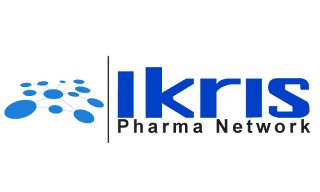In a groundbreaking move, the U.S. Food and Drug Administration (FDA) has granted accelerated approval to trastuzumab deruxtecan (Enhertu) for the treatment of any advanced solid tumor expressing high levels of the HER2 protein. This revolutionary decision marks the first time a cancer therapy of its kind, an antibody-drug conjugate, has been approved in a "tumor agnostic" manner, paving the way for a paradigm shift in cancer treatment.
Trastuzumab deruxtecan, developed by AstraZeneca and Daiichi Sankyo, is a targeted therapy that combines the targeted antibody trastuzumab (Herceptin) with the potent chemotherapy drug deruxtecan. Trastuzumab acts as a delivery vehicle, guiding the drug to cancer cells overexpressing HER2 on their surface. Once inside the cell, the cytotoxic payload, deruxtecan, is released, effectively killing the cancer cells.
The FDA's accelerated approval was based on data from three mid-stage clinical trials involving patients with advanced HER2-positive cancers, including lung, colorectal, and various other solid tumors. The results demonstrated remarkable tumor responses and durable outcomes across multiple cancer types.
In the pan-tumor trial, over half of the patients with the highest HER2 expression levels (IHC3+) experienced tumor shrinkage, with many responses lasting for 20 months or more. Notably, the most impressive responses were observed in patients with gynecologic cancers, such as endometrial and cervical cancers, with response rates exceeding 75% and some responses lasting for over a year.
"The strong and long-lasting tumor responses in people with gynecologic cancers are very exciting," said Funda Meric-Bernstam, M.D., the lead investigator of one of the trials at the University of Texas MD Anderson Cancer Center. "Based on the evidence, I expect there will be substantial uptake of trastuzumab deruxtecan among oncologists."
While the drug has shown compelling activity across various cancer types, it is essential to consider its potential side effects, particularly interstitial lung disease (ILD), a serious lung inflammation that has led to fatalities in some patients. Oncologists will need to carefully evaluate the risk-benefit ratio and closely monitor patients for early signs of ILD.
"Not all oncologists may be familiar with interstitial lung disease or pneumonitis, but it's an important adverse event to watch out for," Dr. Meric-Bernstam cautioned. "It's crucial for oncologists to take steps to catch it early and manage it effectively."
This approval represents a significant milestone in cancer treatment, offering a new option for patients with HER2-positive solid tumors where effective therapies are urgently needed. Ezra Cohen, M.D., a specialist in salivary gland cancer at the University of California San Diego Moores Cancer Center, highlighted the impact of this approval, stating, "For a difficult-to-treat cancer like salivary gland cancer, having an effective new treatment for many patients is a major advance."
As the field of oncology continues to evolve, trastuzumab deruxtecan's broad approval marks a pivotal step toward more personalized and targeted cancer care, offering renewed hope to patients with HER2-positive solid tumors.
References:
https://www.cancer.gov/news-events/cancer-currents-blog/2024/fda-enhertu-her2-positive-solid-tumors
.png)




No comments:
Post a Comment